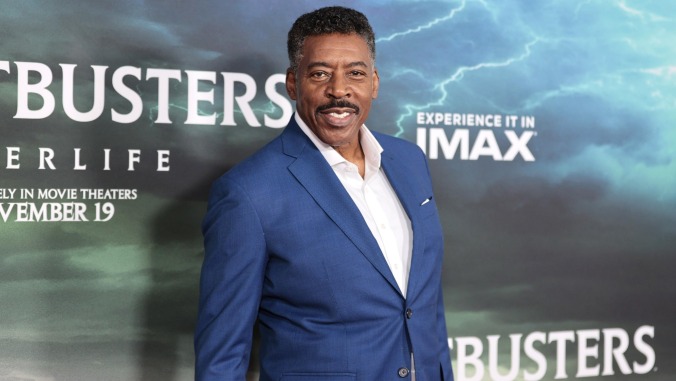Ernie Hudson says being "pushed aside" in Ghostbusters marketing "felt deliberate"
Left off posters and pushed to the middle of the film, Ernie Hudson explained why Ghostbusters was "the most difficult movie I ever did"

It’s not a new criticism that Ernie Hudson’s Ghostbusters character, Winston Zeddemore, is among modern moviemaking’s most unfairly treated characters. Zeddemore’s accomplishments include saving New York City from a giant marshmallow man, driving the Statue of Liberty, and gazing upon the unholy CGI Harold Ramis in Ghostbusters: Afterlife. Heck, he even gets one of the best lines in the movie (“I love this town!”). Representing one-fourth of the original Ghostbusters, Zeddemore is a Big Apple legend, even if the ad wizards at Columbia Pictures were too afraid to acknowledge it in the marketing.
While fans at home probably had a hint as to why the one Black Ghostbuster wasn’t included in the marketing for the movie, the film’s impact was a difficult one for actor Ernie Hudson to live through. Speaking with SiriusXM’s The Howard Stern Wrap Up Show, Hudson revealed that living with the success of Ghostbusters hasn’t been easy.
Hudson calls himself “the guy who was brought in” as his fellow Busters, Dan Aykroyd, Harold Ramis, and Bill Murray, had starred in numerous projects together. Aykroyd and Ramis wrote the film, and Murray joined the project after fellow SNL castmate John Belushi died. All three also had an ongoing working relationship with director Ivan Reitman, who Hudson calls “really a brilliant man” and someone he has “so much love and appreciation for.” Hudson maintains, “they were all welcoming and inclusive.” Columbia? Not so much. “The studio wasn’t, and the studio continued not to be,” he said. “So it made it very, very difficult because I was a part of it, but then I, very selectively, was pushed aside.”
The issues began with a script change made after Hudson was hired. As originally written, “Winston was in the very beginning of the movie.” However, the shooting script punted the character to the halfway mark, which he says “felt deliberate.”
 Keep scrolling for more great stories.
Keep scrolling for more great stories.
